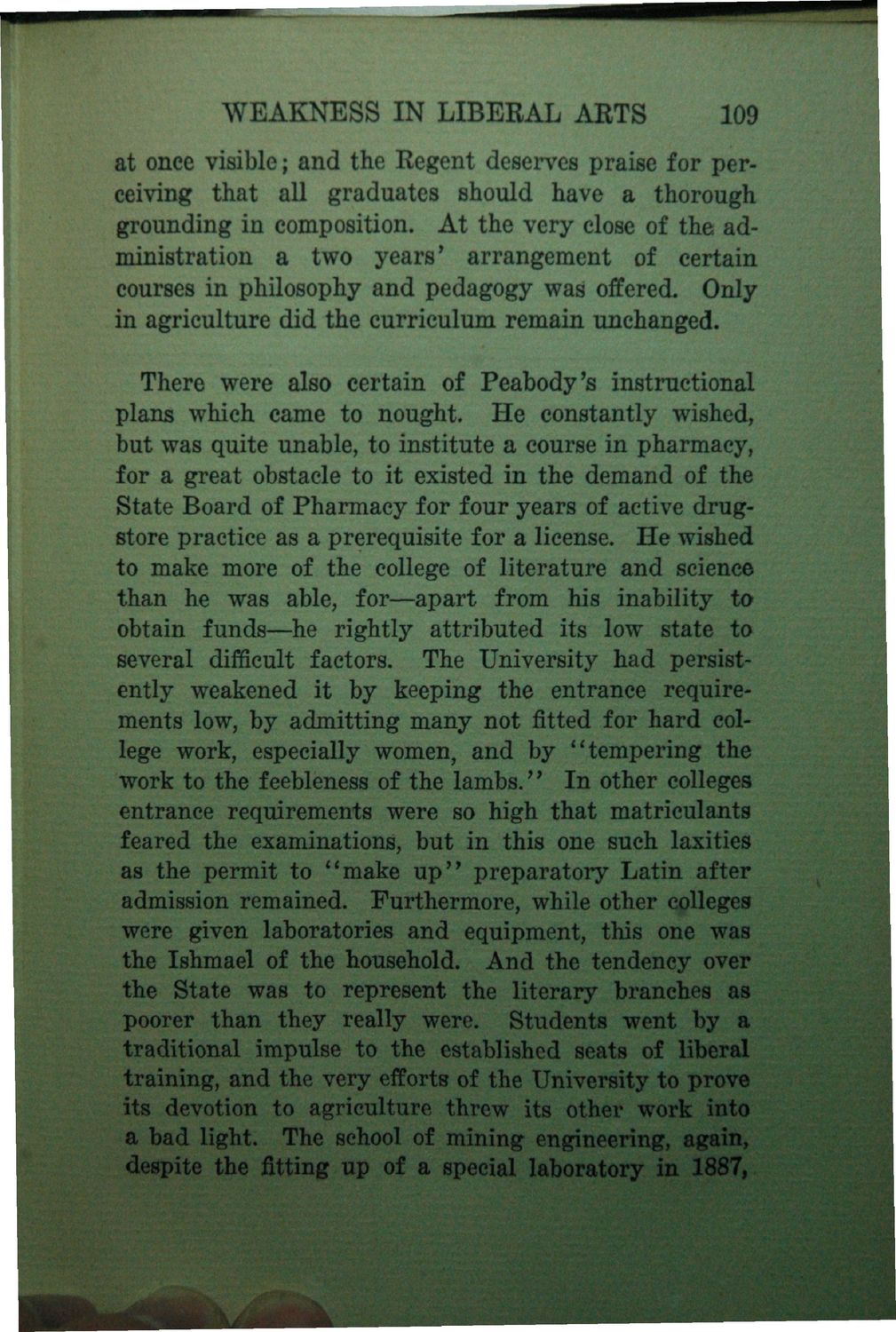| |
| |
Caption: Book - History of the University (Nevins)
This is a reduced-resolution page image for fast online browsing.

EXTRACTED TEXT FROM PAGE:
WEAKNESS IN LIBERAL ARTS 109 at once visible; and the Regent deserves praise for perceiving that all graduates should have a thorough grounding in composition. At the very close of the administration a two years' arrangement of certain courses in philosophy and pedagogy was offered. Only in agriculture did the curriculum remain unchanged. There were also certain of Peabody's instructional plans which came to nought. He constantly wished, but was quite unable, to institute a course in pharmacy, for a great obstacle to it existed in the demand of the State Board of Pharmacy for four years of active drugstore practice as a prerequisite for a license. He wished to make more of the college of literature and science than he was able, for—apart from his inability to obtain funds—he rightly attributed its low state to several difficult factors. The University had persistently weakened it by keeping the entrance requirements low, by admitting many not fitted for hard college work, especially women, and by "tempering the work to the feebleness of the lambs." In other colleges entrance requirements were so high that matriculants feared the examinations, but in this one such laxities as the permit to "make u p " preparatory Latin after admission remained. Furthermore, while other colleges were given laboratories and equipment, this one was the Ishmael of the household. And the tendency over the State was to represent the literary branches as poorer than they really were. Students went by a traditional impulse to the established seats of liberal training, and the very efforts of the University to prove its devotion to agriculture threw its other work into a bad light. The school of mining engineering, again, despite the fitting up of a special laboratory in 1887,
| |